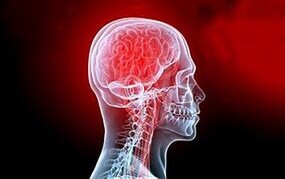Concussion and Post-Concussion Syndrome
This information is about concussion and post-concussion syndrome, as well as the resources and recent findings related to their manifestations and management. Concussions are a significant concern, especially in sports and activities where head injuries are more common. Here are some key takeaways :
The Cerebral Dysfunction Syndrome: Allan Terrett's work in the book "Foundations of Chiropractic" highlights various symptoms associated with head injuries and neck trauma, such as giddiness, dizziness, lethargy, depression, headaches, memory problems, and more. He suggests that a reduction in blood flow to the brain may lead to the brain not functioning properly. Additionally, Terrett advocates for spinal manual therapy as a potential treatment option for these disorders.
The Craniocervical Syndrome: Francis W. Smith and Jay S. Dworkin discuss the concept of "Craniocervical Syndrome" in their book, which involves the displacement of the brainstem into the upper cervical spinal canal when transitioning from a lying down to an upright position. This displacement may disrupt cerebral spinal fluid, blood flow, and lymphatic drainage, potentially causing symptoms of concussion. They also discuss the associated risks of neurological conditions, including motor neuron disease, due to this displacement.
Chiropractic Management: Scott Rosa, a chiropractor in the USA, has written a chapter on the chiropractic management of conditions related to craniocervical syndrome. It seems that he has had some success in treating patients with symptoms of concussion and brainstem displacement.
Importance of Mobility and Controlled Physical Activity: Recent studies suggest that strict rest, both cognitively and physically, after a concussion may not be as effective as previously believed. Controlled physical activity and aerobic exercise are now thought to speed up recovery and reduce the risk of delayed or persistent symptoms.
Limiting Screen Time and Promoting Good Sleep: Recommendations from the 6th International Conference on Concussion in Sport in 2022 emphasize the importance of limiting screen time and ensuring good sleep habits for individuals recovering from concussions. These lifestyle factors can play a role in the overall well-being and recovery of those affected by head injuries.
It's important to note that the management of concussions and related conditions may vary depending on individual circumstances, and it's crucial for individuals who suspect they have a concussion to seek medical attention and follow the guidance of healthcare professionals. Additionally, ongoing research and advancements in the field of concussion management continue to provide valuable insights into effective treatment strategies.
